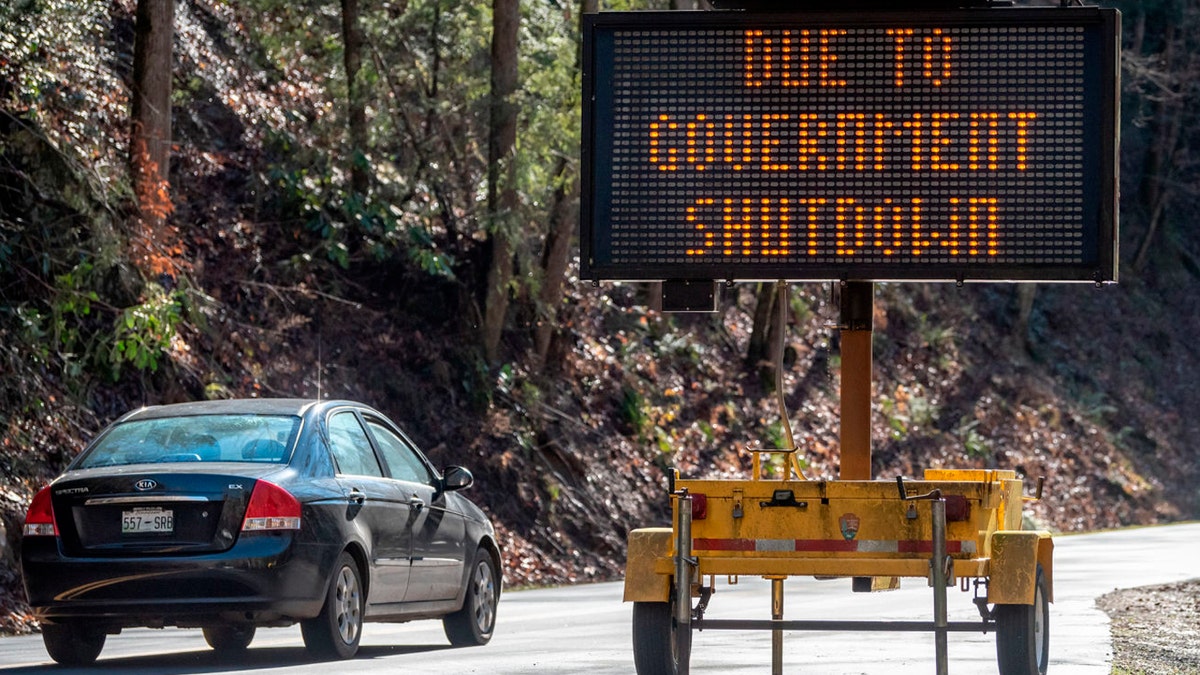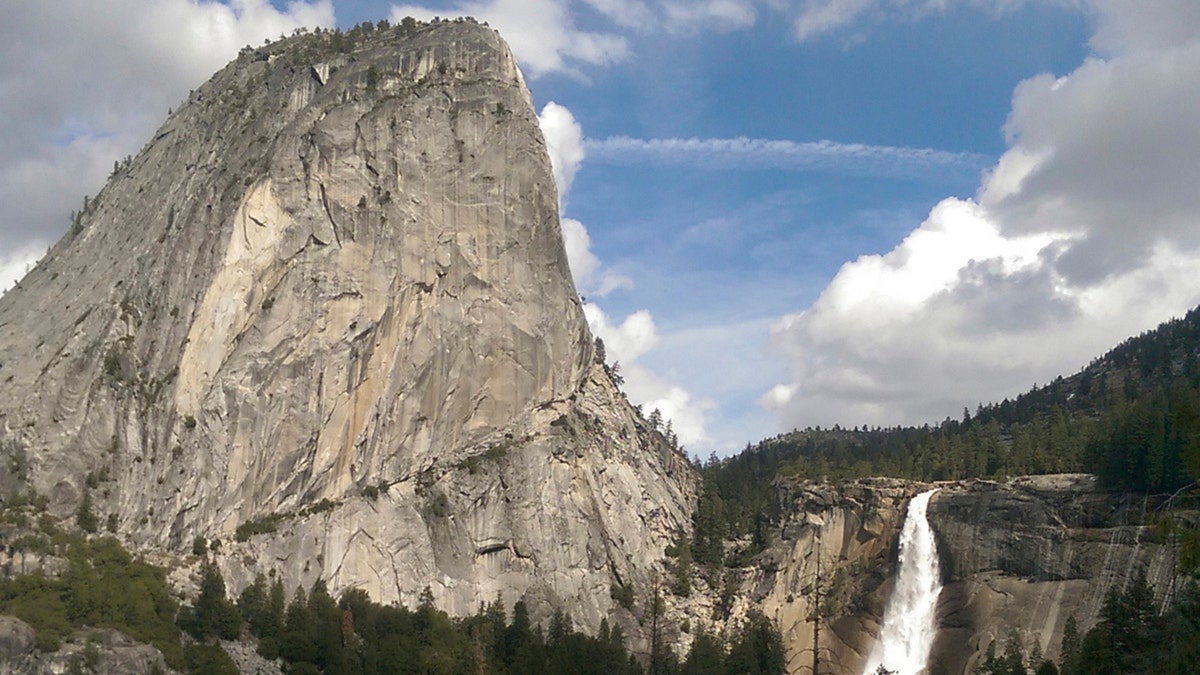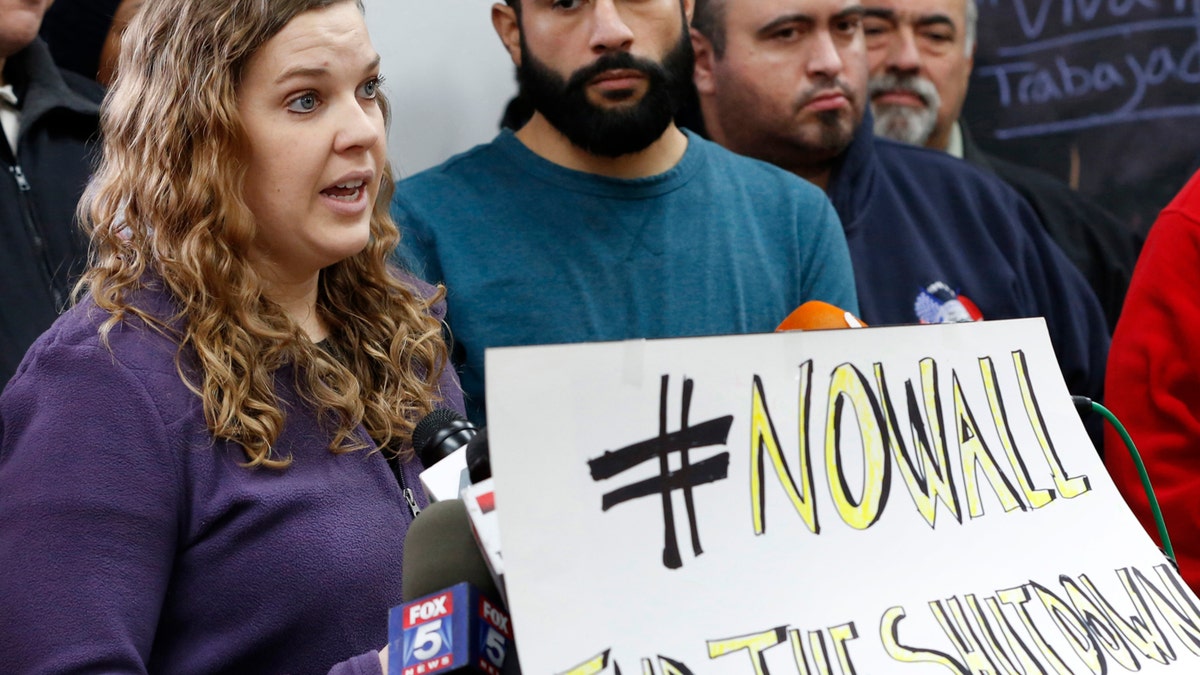
In this Saturday, Jan. 5, 2019, photo visitors to Great Smoky Mountain National Park drive through the park but facilities like the Sugarlands and Cades Cove visitor centers in Townsend, Tenn. (AP)
The longest-ever U.S. government shutdown, which has caused 800,000 federal workers to go without paychecks, led TSA workers to call out sick and sparked protests across the country, is also having a negative impact on scientists.
Thousands of federal food inspectors and public health workers are furloughed and a wide range of scientific projects and tasks are now on hold.
The government agencies that are being hit by the partial shutdown reportedly include the U.S. Geological Survey, the Department of Agriculture, the National Oceanic and Atmospheric Administration, the Environmental Protection Agency and NASA, where nearly all employees are on leave.
Last year, the National Science Foundation gave out $42 million in grants from January 1 through January 8, but this year it hasn't given out any, according to a statement from the American Society for Biochemistry and Molecular Biology.
Meanwhile, the National Weather Service, which is considered critical due to its role in protecting public safety, is still open during the partial shutdown — but the forecasts may not be as good. One NWS manager told The Washington Post that the lack of empathy from the government was like a slap in the face.
TECHNOLOGY BRINGS IMAGES OF HOLOCAUST SURVIVORS TO LIFE

In this March 28, 2016, file photo provided by the National Park Service, water flows over the Nevada Fall near Liberty Cap as seen from the John Muir Trail in Yosemite National Park, Calif. (AP)
"Federal employees care about what they do,” the manager told the Post. “As much as we can repeat in our minds, ‘It will be okay, eventually,’ you can’t tell your body to stop worrying. One employee got two hours of sleep last night after going through all his bills, trying to figure out where to start."
National parks remain in disarray, with few employees to control crowds or pick up the increasing amount of trash and human waste. Visitors driving through Joshua Tree National Park reportedly cut down protected trees so that they could clear a path.
Instead of working to make sure that Superfund sites, such as Gowanus Canal in New York, are cleaned up, EPA employees are on leave.
During the partial shutdown, federal scientists aren't able to attend scientific meetings, which is how new research gets shared. According to Science News, government scientists have already missed key conferences on astronomy, biology, weather and agricultural science.
IS IT RAINING SPIDERS IN BRAZIL?

Furloughed National Park Service ranger Sean Ghazalam, second from left, listens as fellow furloughed park ranger Kathryn Gilson speaks during a press conference and rally, Thursday, Jan. 10, 2019, at La Colmena Center in the Staten Island borough of New York city. (AP Photo/Kathy Willens)
More than 10 percent of planned participants at the American Astronomical Society meeting that just wrapped up on January 10 in Seattle had to cancel presentations, AAS spokesman Rick Fienberg told Science News. Astrophysicist Jane Rigby at NASA’s Goddard Space Flight Center was one of them.
Rigby had to abandon her planned talks about the James Webb Space Telescope because nobody outside of the U.S. space agency had the expertise to cover for her.
“This is the Super Bowl of astronomy, and we’re not allowed to play,” she said. “It’s not even like we’re benched. We’re not even allowed in the stadium.”








































